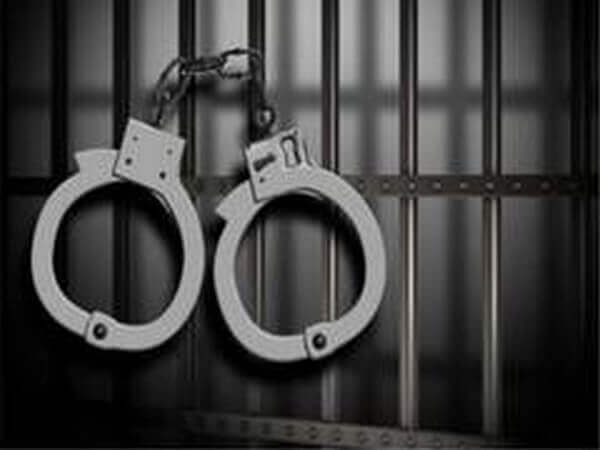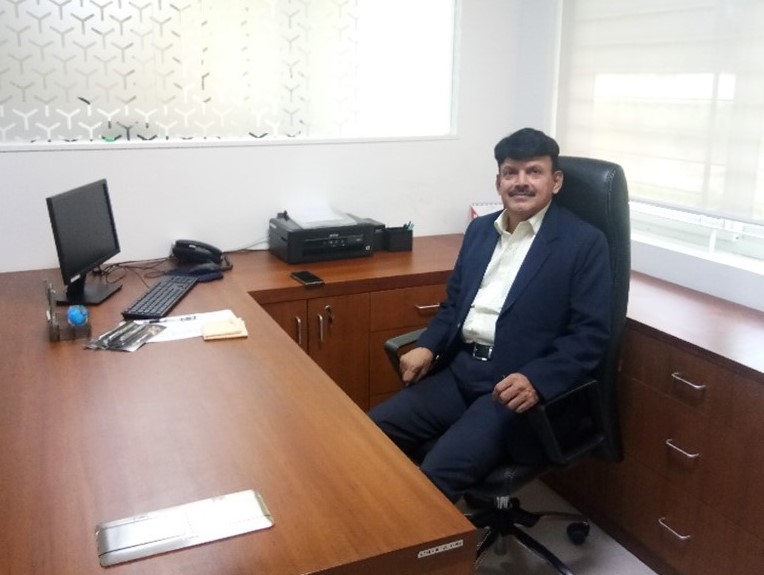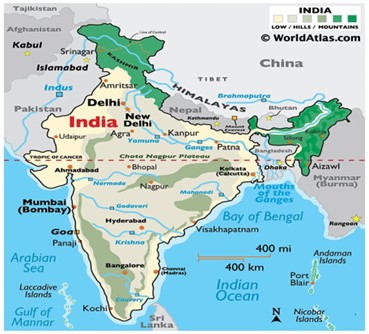
Body Packing in International Drug Trafficking
Sun, 05 Sep 2021 | Reading Time: 6 minutes

A Nigerian, who arrived on a flight from Johannesburg via West Asia, was intercepted by the Directorate of Revenue Intelligence (DRI), on 17th August 2021, at Bangalore Kempe Gowda International Airport, which led to the recovery of 1.2 kg of Cocaine worth Rupees 11 crores from his stomach.
This was the second such seizure of cocaine in the country in the month of August. Earlier, the Narcotics Control Bureau (NCB) Mumbai had arrested a Mozambican national at the Chhatrapati Shivaji International Airport for carrying 1.02 kg of cocaine, worth around Rupees ten crores concealed in his stomach.
It is a fact that there are some Nigerians who are running an unparalleled and unchallenged trade in narcotics in India. They deal in the highly lucrative trade in Cocaine, Heroin and Methaqualone. The Intelligence Bureau (IB) estimates that these Nigerians control 60 per cent of India’s drug trade and dominates both the wholesale and retail trade. Many are married to Indian women which enables them to use bank accounts and also facilitates their stay in India.
The Nigerian drug barons run an international drug distribution network. The United States of America is the single largest consumer of hard drugs that pass-through Nigeria. In the process, West Africa has become an important global player in the narcotics trade. “…West Africa has come into the spotlight as an increasingly important site and destination in the global drug-trafficking system. Evidence of the growing role of the sub-region in the global strategy and operations of international drug cartels is broad and varied, comprising of a complex admixture of both direct, traceable facts from official and non-official sources, and more indirect information of an indicative, associative and anecdotal nature. Initially targeted as a re-distribution centre and transit point for the trafficking of drugs to end-use destinations around the world, most notably Europe and North America, the sub-region has gradually become a market destination in its own right for global drug cartels mainly, though not exclusively, originating from Latin America. Evidence also points to the emergence of West Africa as an increasingly significant production site for some types of drugs, including Amphetamine-type stimulants.” (The Challenge of Drug Trafficking to Democratic Governance and Human Security in West Africa: A Historical Reflection. Africa Development, Volume XLIV No 4, 2019, pp 29-49, Council for The Development of Social Science Research in Africa, 2019).
Nigerians have emerged as a leading player in India’s drug scenario, especially in Goa, giving it the nickname ‘Cocaine Coast’. There are an estimated over 50,000 Nigerians in India, from students to businessmen. Nigerians in India form one of the largest African communities in the country. Many are staying legitimately. But a substantial number are staying without any travel documents. The modus operandi is to simply destroy their passports once they reach India, and claim it as lost.
According to the African Association of Students in India (AASI), there are about 25,000 African students studying in various Indian universities. Sudan and Nigeria are among the top contributors of foreign students to India.
Nigerians are engaged in the lucrative activity of feeding party circuits in different parts of the country with a buffet of cocaine, methamphetamine and LSD. In many parts of the country like Mumbai, Chandigarh, Bangalore, the drug trade is in the hands of Nigerians. As on 31st December 2019, there were nearly 686 Nigerians lodged in different jails across the country, mostly for drug related offences. (Prison Statistics India 2019, National Crime Records Bureau, Ministry of Home Affairs, Government of India, Page 108).
Apart from the drug-trafficking angle, Nigeria has one of the highest terrorism threat levels in the world. The country recently recorded the second highest number of people who died in terrorist attacks worldwide, after Afghanistan. Several militant groups are active in Nigeria, leading to attacks on both civilian and military targets. Boko Haram is by far the deadliest, mostly active in the north of the country. The effect of terrorist activities such as suicide bombings, kidnappings, destruction of lives, public infrastructure, private and entrepreneurial investments, the climate of fear, panic and confusion, has made lives miserable for the common man. Prominent terror groups are Jamaat Nusrat al-Islam wal Muslimeen (JNIM), Islamic State West Africa (ISWA), Islamic State Greater Sahara (ISGS), Al Qaeda in the Islamic Maghreb (AQIM), Al Murabitoun, Ansar Dine and Boko Haram.
Boko Haram is listed as a terrorist group by the UNSC Counter-Terrorism Committee. Since the group has begun to pose a threat to the Lake Chad Basin, it has kidnapped, recruited and exploited thousands of children. According to the 2019 Report ‘Global Terrorism Index 2019. Measuring the Impact of Terrorism’: “Boko Haram adopts a conscious strategy to recruit women and children as suicide bombers, sometimes forcibly. The group’s leaders realized the strategic benefits of including more women and children. During their association with the group, children are subjected to extreme levels of violence, including rape, forced marriage, physical and psychological abuse, forced labour, forced religious conversion, torture, cruel, inhuman and degrading treatment and sexual and gender-based violence. Child recruitment and exploitation violate the rights of children and cause long-lasting physical, developmental, emotional, spiritual, and mental harm. These children can be instrumentalized and forced to commit criminal offences, including acts of terrorism, war crimes, and crimes against humanity. Two-thirds of Boko Haram suicide attackers are female, of these, one in three are children.”
Boko Haram is notorious for strapping bombs onto young girls and then sending them into crowds, for detonation thereby causing massive deaths and destruction. Boko Haram is extensively involved in trafficking the drug Tramadol. According to UNODC, Tramadol is regularly found in the pockets of suspects arrested for terrorism in the Sahel, or who have committed suicidal attack.
On 11 January 2021, India expressed its concerns on acts of terrorism in West Africa at the United Nations Security Council (UNSC) pointing out to increased activities of Boko Haram and Islamic State’s West Africa Province (ISWAP). Highlighting out how terrorism, drug trafficking, and organized crime have continued unabated, the Indian envoy to the United Nations, T.S. Tirumurti said, “The terror attacks in Burkina Faso, particularly in regions bordering Mali and Niger, have again underscored the urgent need to intensify efforts to combat terrorism, which is spilling over into other countries and regions.”
According to the Global Terrorism Index 2020, ‘Five of the ten countries are classified as being in a state of war: Afghanistan, Nigeria, Syria, Somalia and Yemen. The remaining five were involved in minor conflicts.’ Nigeria is ranked as number 3 in the Index, while India is ranked 8th.
Though the Nigerian presence in Indian drug trafficking scenario is worrisome, India has a lot of stakes in Nigeria. India is the largest importer of Nigerian petroleum products. Out of the total India’s imports of $ 10.21 billion from Nigeria, crude oil accounted for $ 10.03 billion. In recent years, Nigeria has been one of the main sources of crude for India. Indian owned/operated companies are the 2nd largest employer in Nigeria. The resident Indian community in Nigeria is estimated to be nearly 50,000. In addition, thousands of workers are engaged in several ongoing, large projects. There are nearly 100 Indian companies functioning in Nigeria.
Drug peddlers are targeting India because it is the best-connected country in South Asia and it has a huge market for drugs. Nigerians have earned notoriety of being the main players in the narcotic trafficking business and also involved in large scale peddling rackets. They have been smuggling Heroin from Central, Southeast and Southwest Asia. The Nigerians have over the years established solid networks and have ready access to the infrastructure to smuggle drugs across the world. They have developed a specialty in the recruitment of couriers to transport drugs on their behalf, because of the dangers associated with doing these themselves. However, some Nigerians continue to courier drugs themselves and this is shown by some of the recent arrests made by NCB, DRI, Customs and Police.
Whatever said and done, it cannot be denied that some Nigerians are well entrenched in drug trafficking and drug peddling in India. The phenomenal amount of tax-free cash accumulated in the hands of foreign nationals has grave consequences for internal and external security. Very soon, terror groups operating within India are going to eye these Nigerian drug traffickers as an easy source of money. The Nigerians being tough fighters are going to resist, leading to violent clashes and internal disturbances. Another possibility is that of illegal immigrants from Bangladesh, Rohingyas and Nigerians (BRN) being clubbed together under ISI supervision and guidance, to exacerbate drug smuggling and terror operations. The possibility of Boko Haram operatives entering the country in the guise of students and businessmen, to establish links with local terror groups need to be kept in mind.
The Nigerian connection in drug trafficking and peddling in India, can flare-up and cause a new concern in the sub-continent.
***************
Author

Dr G Shreekumar Menon, IRS, (Rtd) PhD (Narcotics) is Former Director General, National Academy of Customs Indirect Taxes and Narcotics, & Multi-Disciplinary School Of Economic Intelligence India, Fellow, James Martin Center For Non Proliferation Studies, USA. Fellow, Centre for International Trade & Security, University of Georgia, USA , Public Administration, Maxwell School of Public Administration, Syracuse University, U.S.A., AOTS Scholar, Japan.
Disclaimer
The opinions expressed in this article are the author’s own and do not reflect the views of Chanakya Forum. All information provided in this article including timeliness, completeness, accuracy, suitability or validity of information referenced therein, is the sole responsibility of the author. www.chanakyaforum.com does not assume any responsibility for the same.
Chanakya Forum is now on . Click here to join our channel (@ChanakyaForum) and stay updated with the latest headlines and articles.
Important
We work round the clock to bring you the finest articles and updates from around the world. There is a team that works tirelessly to ensure that you have a seamless reading experience. But all this costs money. Please support us so that we keep doing what we do best. Happy Reading
Support Us




















POST COMMENTS (2)
A T PANNEERSELVAM
Balbadhrapathruni Prabhakar